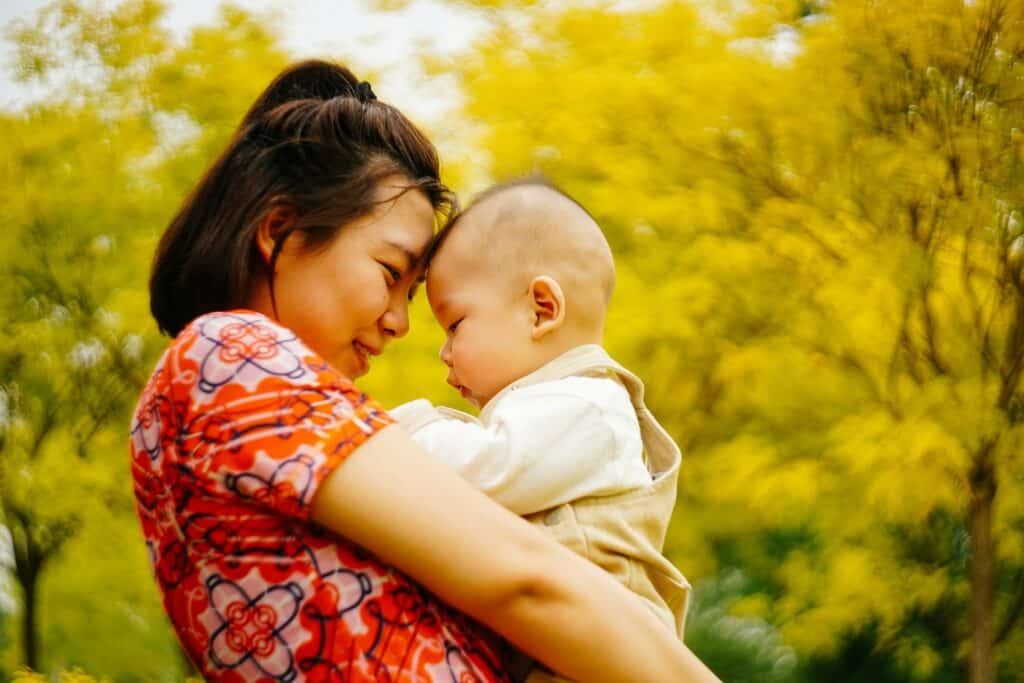
The postpartum period is often described as a time of joy and bonding, but for many new moms, it’s also a time of worry. Transition to parenthood is a significant life change, bringing emotional, hormonal, relationship, and lifestyle shifts all at once. Caring for a newborn while adjusting to your life being completely different makes some level of worrying inevitable. But when worry starts to take on a life of its own, it’s important to pay attention and seek support. Let’s explore some of the most common ways postpartum worry can show up and what to do about it.
Constant Worry About Baby’s Health and Safety
It’s natural to want to keep your baby safe, but for some moms, this concern becomes all-consuming. For instance, Mia* found herself waking up multiple times a night just to check if her baby was still breathing. Even when her pediatrician reassured her that everything was fine, she couldn’t shake the fear that something might go wrong. She spent hours researching SIDS. While being attuned to your baby is important, constant anxiety over a baby’s well-being can quickly become exhausting and overwhelming. If this sounds familiar, talking to a mental health professional can help you find ways to ease your anxiety, like setting limits on research time, practicing relaxation techniques, and learning to manage anxious thoughts in new ways.
Intrusive Thoughts That Feel Scary
Some new moms experience distressing thoughts that seem to come out of nowhere. Rachel,* a mother of two, was horrified when she started having intrusive thoughts about accidentally dropping her baby down the stairs. She knew she would never intentionally harm her child, but the thoughts were so vivid that they left her feeling horrified, ashamed, and afraid to tell anyone. The truth is, these intrusive, unwanted types of thoughts are common in postpartum moms and don’t mean you’re a bad mother. They’re often linked to anxiety and a highly activated sense of responsibility. At Wildflower, we work with many postpartum moms who sought us out due to worry about the presence of these kinds of thoughts and what they could mean. The good news is that there are many effective ways to cope with them!
Feeling Like You’re Not a “Good Enough” Mom
Social media makes it seem like other moms have it all together—perfect nurseries, happy babies, and endless patience. Sofia* couldn’t help but compare herself to these images and felt like she was failing. She second-guessed every decision, worried she wasn’t bonding with her baby enough, and felt guilty for wanting a break. This kind of self-doubt can be crushing, but it’s important to remember: there’s no such thing as a perfect mom, and babies don’t need perfect mothering! Every baby (and every mom) is different, and what works for one family may not work for another. Trusting yourself and letting go of unrealistic expectations can be a game-changer.
Anxiety About the Future
For many moms, the worries go beyond the here and now. Anna* was anxious about returning to work, wondering how she’d balance her job and being a parent. She worried about daycare, finances, and whether her relationship with her partner would change. These types of worries are completely valid, but they can also become unhelpful and overwhelming. The key is to take things one step at a time—making a plan, leaning on your support system, being realistic, and giving yourself permission to adjust along the way.
You’re Not Alone—And You Don’t Have to Stay Stuck
If postpartum worry is taking over your life, know that help is available. At Wildflower, our team of mental health professionals specializes in maternal mental health and is here to support you. Remember: taking care of yourself isn’t selfish, it’s essential. The postpartum period comes with many challenges, but with the right support, self-compassion, and time, it does get easier.
Further Reading
- Check out our free Pregnancy and Postpartum Mental Health Guide
- If breastfeeding is a source of your worry, read our Breastfeeding and Mental Health guide
- Learn more about self-care during the postpartum period here
- Acquaint yourself with the work and resources offered by Postpartum Support International, a leading organization dedicated to providing support, education, and advocacy for individuals experiencing postpartum mental health challenges
- The Pregnancy and Postpartum Anxiety Workbook: Practical Skills to Help You Overcome Anxiety, Worry, Panic Attacks, Obsessions, and Compulsions by Pamela S. Wiegartz and Kevin L. Gyoerkoe is an excellent self-help workbook to check out
*Please note all names have been changed to protect confidentiality, and the examples provided throughout this article are composite scenarios based on common experiences among postpartum mothers rather than depictions of specific individuals.

